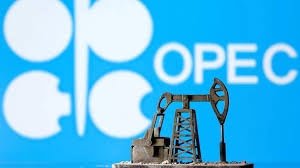OPEC countries did not change production quotas, despite price restrictions on Russian oil

Despite the establishment by the G7 countries and the EU of the maximum price for Russian tanker oil at the level of $60/barrel, the OPEC countries at the meeting on December 4 left the oil production quotas unchanged, taking into account the impact of the price cap mechanism on the world market and the prospects for oil demand from China.
At the previous meeting in October, OPEC+ agreed to reduce oil production by 2 million barrels/day from November 2023, which is equivalent to 2% of global demand. OPEC attributed the reduction in production to the deterioration of the economy of China and the world in general, which, against the background of high interest rates, led to a decrease in oil prices in October. Some Western countries were dissatisfied with such plans, in particular, the USA accused Saudi Arabia of supporting Russia's position, despite the war it had unleashed in Ukraine. But for now this decision has been postponed.
The next time OPEC+ ministers will meet on February 1 for the monitoring committee, and the full meeting is scheduled for June 3-4.
The authorities of the Russian Federation have declared that they will export oil only to countries that support market conditions and do not introduce a price limit, even if they have to reduce production.
Last week, in anticipation of a reduction in production quotas, January Brent crude oil futures rose 2.4% to $85.6/barrel, and WTI crude oil rose 1.6% to $80/barrel, losing 13 for the month .3% and 14.4%, respectively.
A limit price for Russian oil at $60/barrel will support global prices, as Urals oil is currently trading at $50/barrel, although it will continue to decline amid sanctions risks and restrictions on shipping and insurance.
The oil market supports China's decision to relax quarantine restrictions in some parts of the country, which will allow the economy to recover faster. On Wednesday, restrictions were lifted in the southern industrial hub of Guangzhou, in key areas of the city of Zhengzhou, and a gradual lifting of restrictions began in Chongqing. The country's authorities said that the omicron strain is weakening, the population is getting vaccinated, so the fight against the virus is entering a new phase. However, on Sunday, the number of new diseases reached a record 38,808 cases. Analytical company Kpler believes that in the 4th quarter, oil demand in China will average 15.11 million barrels per day, while a year ago it was 4.5% more and reached 15.82 million barrels per day.
Amid lower oil prices, quotes for rapeseed oil, palm oil and soybean oil fell by 4.1%, 1.5% and 11% respectively during the week due to a likely reduction in demand from the biodiesel industry.


